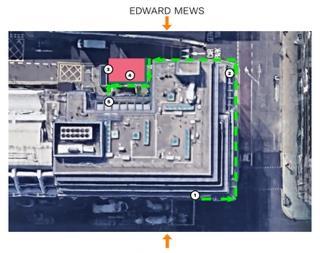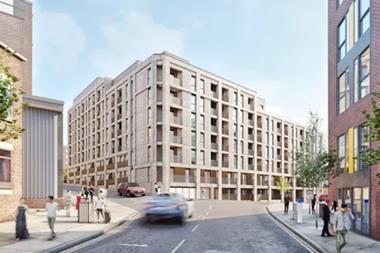After nearly a year of gathering evidence, the interim report of the Raynsford Review of Planning was released to the public last week.

According to Nick Raynsford’s report, the planning system is “broken” and facing a “major crisis of purpose” with little agreement on objectives, no “route map” and “widespread confusion about key policy”. The government may concede that the planning system has its problems, but the former Labour MP and minister for housing argues there is no “consensus about what to do about the problems”.
While few experts disagree with the report’s findings, some in the industry have questioned its suggested solutions, as well as its power to affect policy.
The report describes a system defined by a lack of definition. In fact, after nearly a year analysing the planning system, the Raynsford Review of Planning claims that “a fixed description of the system is almost impossible to provide”. Morale is also low, it notes, with those who work within planning having “little faith” in the current approach.
In light of all this, the report calls for a simplified, people-centred planning system and a fairer way of sharing land values. It rails against the deregulation and fragmentation of the system’s power and calls for “a simplified, consolidated and integrated Spatial Planning Act for England” instead.
Professor Gavin Parker, chair of planning studies at the University of Reading, is sceptical of the report’s aims. “The concern, of course, is whether anyone in government takes much notice.”
“Hankering for a return to post-war values is not going to be the solution”
Carl Dyer, Irwin Mitchell
Carl Dyer, national head of planning at Irwin Mitchell, is also critical, arguing that the report only aims “to provoke a wider debate” and that the approach suggested by the report is tinged with “nostalgia”.
Indeed, much of the report focuses on the history of the planning system, comparing the successes of the 1947 system with the failures of the 2018 one. “Hankering for a return to post-war values is not going to be the solution,” says Dyer.
Small change
Hannah Richardson, the chair of Women in Property for Yorkshire and the North East, is more optimistic, calling the report’s reimagining of the planning system “both laudable and interesting”.
Grant Lipton, co-founder of Great Marlborough Estates, agrees: “The proposals in this report offer a clear and succinct planning system. It’s better than our current system, which has come about through ambiguous piecemeal changes.”
The number of small changes to the system and the ambiguity they create are also the focus of the report. It notes that there have been four different “plan frameworks” in the past 15 years.
The result is planning that is “not well integrated” and where the devolution of control – to 340 local planning authorities and 2,200 neighbourhood plans and separate powers for London – has created a system that “can charitably be described as a mosaic”.
Despite this, the report argues that central government currently has more power “than at any time in the post-war period”. Where planning was once a matter for local authorities, several pieces of recent legislation give the government the ability to step in as and when it likes.
‘Unplanned England’
However, the report concedes that the ministry for housing, communities and local government has “no specific remit to organise the institutions and agencies involved in local planning”. As a result, “England is now increasingly ‘unplanned’”.
Caroline Marston, managing director of Marston Properties, says this lack of co-ordination means many projects end up lacking “the infrastructure and considerations required”. “This is a wasted opportunity – with the right mix of homes and infrastructure, we can create self-sustaining communities with a diverse and vibrant mix of people,” she says.
For Richardson, the report could make things better. “It seeks to redefine the purpose of planning and the role of the planner within our society,” she says.
“This is certainly worthy of further exploration through the final report as the status of planning within society is very low and many communities feel that development – and hence planning – is done to them, rather than for and alongside them.”

According to Raynsford’s report, we now face a choice between “further incremental ‘tinkering’ with the system and the reimagining of planning”. As Richardson puts it, the key issue is whether there needs to be a “revolution or evolution of the current system”.
For Irwin Mitchell’s Dyer, revolution is the best way forward. “The only way to resolve the crisis in our planning system is [through a] massive simplification of the rules and controls,” he argues.
The report also calls for a “simplified planning law”, but argues strongly against doing this through deregulation. It blames precisely this thinking for the “underfunded and deeply demoralised” state that public planning is now in.
But Dyer sees deregulation as the solution, not the problem. While the report argues that planning permission deregulation has led to the “purchase of planning permissions”, Dyer calls this change “one of the few beneficial reforms of recent years”, adding “they have delivered somewhere between 85,000 and 95,000 new homes already”.
Quality not quantity of houses

Marston concedes that housebuilding is important, but adds there should be an emphasis on quality, not just quantity.
“Planning should be done in the public interest, both now and for future communities,” she says. “This requires planning to focus on not just building homes, but also building the surrounding infrastructure in order to provide opportunities and support for residents.”
Parker is also concerned about deregulation, saying that it is a “short-term” approach that isn’t backed up by evidence and that “trades one form of bureaucracy for another”.
The report contends throughout that the planning system is broken because of years of small changes and deregulation, yet Parker points out that “if the report is taken on board we will, ironically, be faced with more change”.
This contradiction sums up the current state of the English planning system. It is controlled by a “mosaic” of local authorities, yet at the same time it has too much central control. It is deregulated, but also complicated. Everyone agrees that a radical overhaul of the system is needed, but until the industry reaches a consensus on the best way forward change will be slow.






























No comments yet